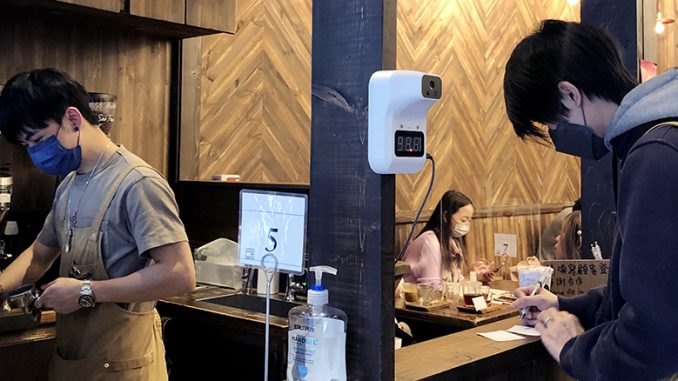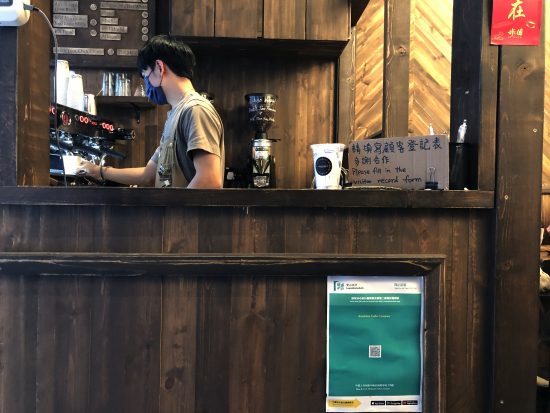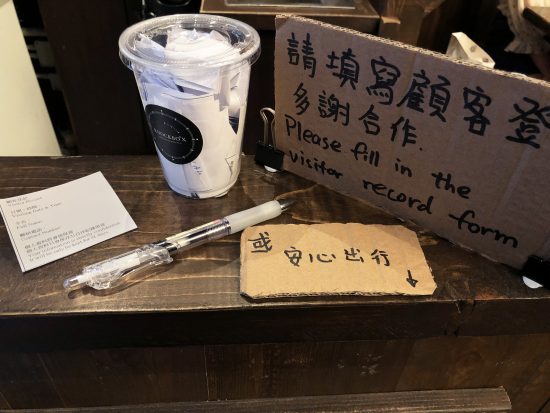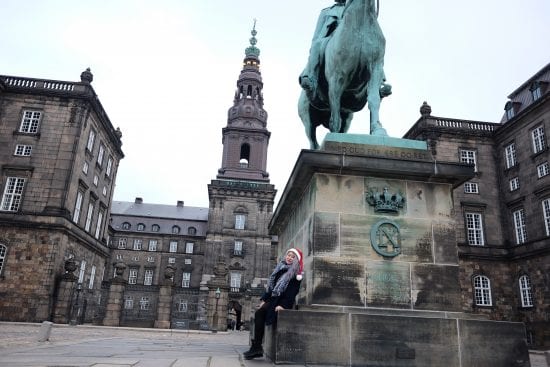
Popping into your neighborhood café for your daily cup of coffee isn’t as simple as it used to be.
BY TIGGER CHATURABUL
SPECIAL TO BARISTA MAGAZINE ONLINE
Photos provided by Tigger Chaturabul
Many countries in Asia have adopted digital contact tracing measures, in addition to mask and temperature check requirements, for people entering any venue deemed high-risk, including coffee shops, restaurants, and bars in particular. In Hong Kong and South Korea, government-mandated contact tracing has been met with very different reactions from patrons and operators alike, forcing cafés to confront the issue of data privacy in addition to all of the other challenges brought on by the pandemic.
In February 2021, dining restrictions were eased in Hong Kong to allow four guests per table and an extension of operating hours until 10 p.m. However, this was with the condition that all employees undergo COVID-19 testing every two weeks and all guests participate in data collection for contact tracing. Café goers had three options: Download the government’s Leave Home Safe app and scan a QR code upon entry; write down their contact and visit information on a piece of paper and pass it to café staff for storage; or forgo café visits for the sake of privacy.

With the recent surge in café hopping, people in Hong Kong are unlikely to give up one of the few entertainment outlets currently available to them. However, recent clashes with law enforcement and increasing government distrust have caused hesitance over using the Leave Home Safe app, which many view as potential spyware that can be abused by law enforcement to collect data.
“After the government announced the tracking request, we were shocked but not surprised,” says Grace Lau, co-founder of RETOLD coffee.tea.spirits. “We had to consider which method would reduce the inconvenience of our customers and employees and protect their rights.” RETOLD is one of many coffee shops in Hong Kong that opted to sacrifice business hours and seating capacity in favor of customer privacy.
“The tracking system is only applicable to the restaurants whose business hours exceed 6 p.m. (as well as limit seating to two guests per table). Restaurants that keep their doors closed at 5:59 p.m. do not need to force customers to use this tracking system. That’s why many shops choose to open only until 5:59 p.m.,” shares Grace.
Knockbox Coffee Company, a local café and roaster, also shared their commitment to privacy in an Instagram post before the mandate came into effect. In the post, hashtagged #wearesorry, they reiterated, “We respect your confidentiality, we also respect the freedom of choice,” understanding customers’ reluctance to share information with government entities. They also guaranteed the availability of paper forms for people to fill out instead of using the app.
“Customers have already gotten used to having to fill out information or scan a QR code before entering a café,” says CP Wong, head roaster and barista at Knockbox, when asked about the implications of mandatory contact tracing on the traditional coffee shop experience. “But if they choose to fill out their information on paper, it is our responsibility to protect it and properly destroy it after the required 31 days of storage,” he says.
For Bill Chu, he doesn’t mind using the Leave Home Safe app to be able to have dinner at a restaurant. However, he questions the advantages of having such an app and its ability to actually contain the virus.

According to the campaign website, the app helps record your visits to public venues and stores the information on your phone. If there is a confirmed case, the patient’s log is shared to the Centre for Health Protection, and people who have visited the same venues at the same time are notified through the app. “It’s too late when you find out,” says Bill. “If you get [the notification], you’re probably already infected.”
Coffee lover Justin Chui says he much rather prefers to trust coffee shops with his information than a government-provided app because going to his usual café is like visiting a friend. There is a relationship based on trust between customers and cafés, which makes handing his information over to familiar businesses feel safe. “(Contact tracing) is just a step or two more than usual (to visit a coffee shop) but it’s better than being forced to stay home like people in other countries,” says Justin. “Giving a company some information to contact me is a small price to pay, but if privacy is not at the forefront of their messaging, then I don’t need to eat there.”
As a café owner, Grace believes a coffee shop is a place where people can relax. “If we need to hand over personal data, the feeling of being monitored makes people feel helpless and awful. That is not what we want our customers to experience,” she says.
We will continue this story tomorrow with South Korea, where we will learn how contact tracing has proven to be a beneficial and trustworthy system for the country’s citizens.

ABOUT THE AUTHOR
Tigger Chaturabul tried to be a barista for two years until she realized she was better suited behind the business than behind the bar. She now runs her own copywriting and design studio, Curious Typhoon Studio, that serves F&B and other small businesses in Hong Kong. Her free-range creative lifestyle allows her to spend all her time in coffee shops everywhere.

